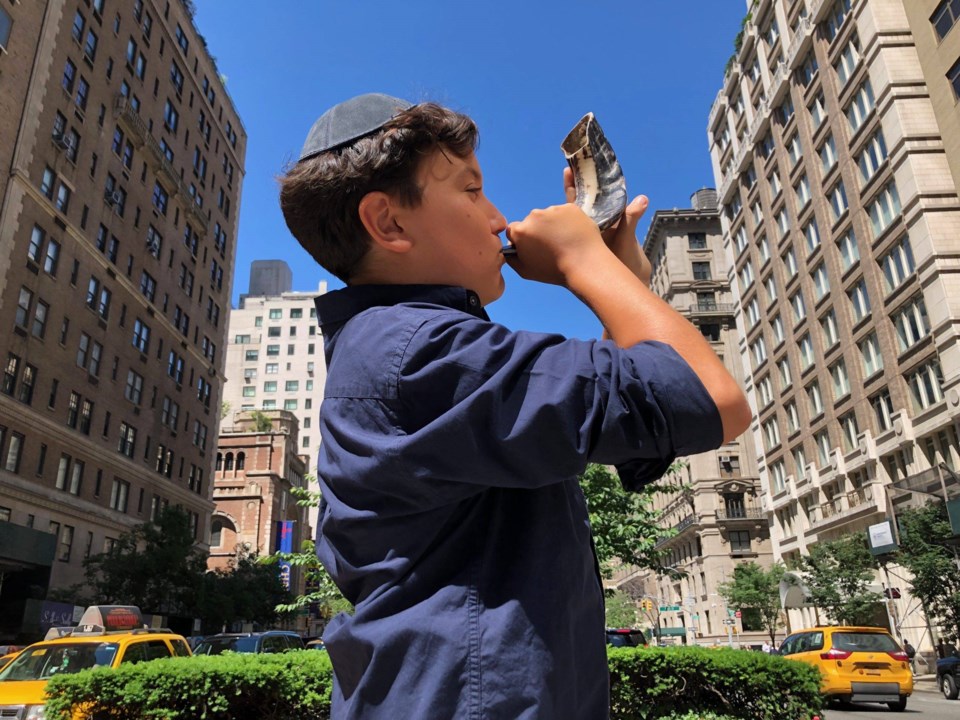The Jewish New Year, Rosh Hashanah will begin at sundown on Friday, September 18. At its core is the teaching that G-d gives second chances and invites everyone to do the same.
In Hebrew, "rosh" means "head." The prefix "ha" means "the," and "shanah" means "year." Therefore, Rosh Hashanah means "Head of the Year" and represents the celebration of the beginning of the Jewish New Year. L'Shanah Tovah Tikateiv Veteichateim is the traditional Rosh Hashanah greeting, wishing others a good year, and it is often shortened to "L'Shanah Tovah" (Good Year).
Rosh Hashanah is considered the anniversary of the creation of Adam and Eve. It is the birthday of mankind, highlighting the special relationship between G?d and humanity. Orthodox Jews use G-d because they believe that God's name is holy and should not be said by humans.
Normally, as the old year goes out, observers start the holiday by going to the synagogue the evening before Rosh Hashanah and come home to have a Yom Tov (holiday) meal.
However this year, the celebration will largely take place in people's homes, online or in outdoor locations because of the coronavirus pandemic. Jewish organization UJA-Federation is providing more than 30 outdoor locations to hear the Shofar, the sounding of the ram's horn, on Sunday.
The cry of the shofar is a call to repentance, as the holiday is also the anniversary of man's first sin and his subsequent repentance. Therefore, Rosh Hashanah also serves as the first of the "Ten Days of Repentance" which will culminate in Yom Kippur, the Day of Atonement.
Synagogues and organizations across Brooklyn will be sounding the Shofar for Shofar Across Brooklyn. UJA Executive Director of Regional Planning Rebecca Saidlower said after months of isolation it was, "especially meaningful to celebrate the High Holidays and practice our rituals with community."
"While many may not be able to gather in synagogues this year, Shofar Across Brooklyn gives people a chance to connect with their neighbors outdoors to hear the call of the shofar, one of the most significant observances of Rosh Hashanah."
UJA-Federation of New York's has compiled an annual High Holiday guide with more than 100 virtual and select in-person Rosh Hashanah and Yom Kippur services from synagogues throughout New York City, Long Island and Westchester, covering all denominations.
Rosh Hashana is one of the five major Jewish holidays and observers cannot drive, work, turn on any electric lights or light a new fire. From 10 a.m. to 3 p.m. observers generally do not drink or eat anything. Observers bless one another with the words Leshanah tovah tikateiv veteichateim, "May you be inscribed and sealed for a good year." This saying is the equivalent of Isaiah 54:17 in the Bible, which states, "No weapon formed against thee shall prosper."
And as with every major Jewish holiday, the women and girls will light candles on each evening of Rosh Hashanah and recite the appropriate prayers. After the prayers each night and morning, they recite Kiddush on wine, make a blessing over the challah, and finally, enjoy a festive repast.




